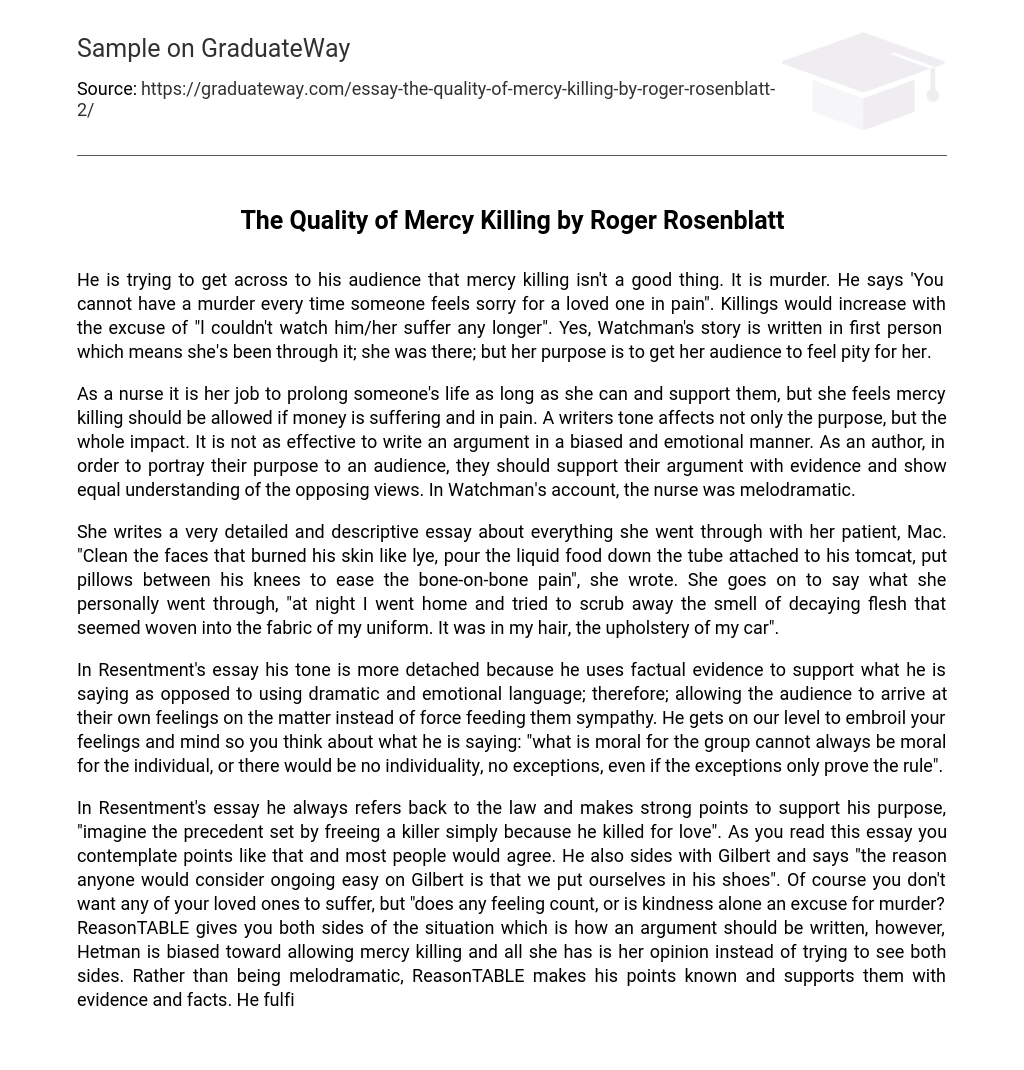He is trying to get across to his audience that mercy killing isn’t a good thing. It is murder. He says ‘You cannot have a murder every time someone feels sorry for a loved one in pain”. Killings would increase with the excuse of “l couldn’t watch him/her suffer any longer”. Yes, Watchman’s story is written in first person which means she’s been through it; she was there; but her purpose is to get her audience to feel pity for her.
As a nurse it is her job to prolong someone’s life as long as she can and support them, but she feels mercy killing should be allowed if money is suffering and in pain. A writers tone affects not only the purpose, but the whole impact. It is not as effective to write an argument in a biased and emotional manner. As an author, in order to portray their purpose to an audience, they should support their argument with evidence and show equal understanding of the opposing views. In Watchman’s account, the nurse was melodramatic.
She writes a very detailed and descriptive essay about everything she went through with her patient, Mac. “Clean the faces that burned his skin like lye, pour the liquid food down the tube attached to his tomcat, put pillows between his knees to ease the bone-on-bone pain”, she wrote. She goes on to say what she personally went through, “at night I went home and tried to scrub away the smell of decaying flesh that seemed woven into the fabric of my uniform. It was in my hair, the upholstery of my car”.
In Resentment’s essay his tone is more detached because he uses factual evidence to support what he is saying as opposed to using dramatic and emotional language; therefore; allowing the audience to arrive at their own feelings on the matter instead of force feeding them sympathy. He gets on our level to embroil your feelings and mind so you think about what he is saying: “what is moral for the group cannot always be moral for the individual, or there would be no individuality, no exceptions, even if the exceptions only prove the rule”.
In Resentment’s essay he always refers back to the law and makes strong points to support his purpose, “imagine the precedent set by freeing a killer simply because he killed for love”. As you read this essay you contemplate points like that and most people would agree. He also sides with Gilbert and says “the reason anyone would consider ongoing easy on Gilbert is that we put ourselves in his shoes”. Of course you don’t want any of your loved ones to suffer, but “does any feeling count, or is kindness alone an excuse for murder? ReasonTABLE gives you both sides of the situation which is how an argument should be written, however, Hetman is biased toward allowing mercy killing and all she has is her opinion instead of trying to see both sides. Rather than being melodramatic, ReasonTABLE makes his points known and supports them with evidence and facts. He fulfils his purpose and therefore, in my opinion, he produced a stronger essay.





